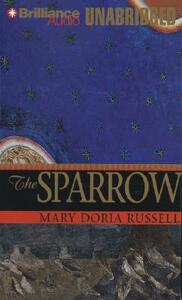You need to sign in or sign up before continuing.
Take a photo of a barcode or cover
dark
emotional
funny
reflective
sad
medium-paced
Plot or Character Driven:
A mix
Strong character development:
Yes
Loveable characters:
Yes
Diverse cast of characters:
Yes
Flaws of characters a main focus:
Yes
challenging
dark
emotional
hopeful
inspiring
mysterious
reflective
sad
slow-paced
Plot or Character Driven:
Character
Strong character development:
Yes
Loveable characters:
Yes
Diverse cast of characters:
Yes
Flaws of characters a main focus:
Complicated
i don't love it as much as i did seven (????!!!!!!) years ago, but still very solid, still emilio stan for life. keeping the original 5/5 rating for posterity
This ended up being fairly forgettable, though it had some interesting aspects. When it came time for the group to encounter a foreign biome, culture, and language, it really fell apart for me. The plot redeems it, so long as you can sidestep the problems, though.
adventurous
challenging
dark
reflective
tense
medium-paced
Plot or Character Driven:
A mix
Strong character development:
Yes
Loveable characters:
Yes
Diverse cast of characters:
Yes
Flaws of characters a main focus:
Yes
Moderate: Death, Rape, Violence
Same review as the sequel, Children of God: Incredible books. Magical, beloved. The characters are so raw and vulnerable and connectable. I hated to leave them at the end of the two books. Such a poetic exploration on our humanity and souls.
Very interesting and thought provoking story of first contact. Having been raised Catholic and now no longer religious, I like reading accounts (even if fictitious) of those who struggle at times with faith and belief as it is something I have personally struggled with for a long time. This is a slow burn with increasing dread as you know from the beginning there is likely no happy ending here.
dark
emotional
mysterious
reflective
sad
tense
slow-paced
Plot or Character Driven:
Character
Strong character development:
Yes
Loveable characters:
Yes
Diverse cast of characters:
Yes
Flaws of characters a main focus:
Yes
THE SPARROW: LA FE EXAMINADA AL LÍMITE DE LO HUMANO
Más en Instagram: https://www.instagram.com/checienciaficcion/
The Sparrow (El Gorrión) - Mary Doria Russel (1996)
Esta es la ciencia ficción que me gusta. La que hace preguntas profundas, incómodas, humanas. La que explora el significado de nuestras vidas y nuestras ideas cuando introducimos una novedad relacionada con la tecnología o, en este caso, el primer contacto con una especie alienígena inteligente.
La premisa de The Sparrow es simple: la humanidad descubre una señal de radio de un planeta en Alpha Centauri. Los jesuitas, siempre dispuestos y con recursos para explorar y pisar nuevos mundos, lanzan una misión para hacer contacto con los habitantes de Rakhat. Sólo un miembro de la tripulación vuelve a la Tierra. Pero el Padre Emilio Sandoz no es más la misma persona. Ha sido destruido física y psicológicamente.
Su experiencia en Rakhat es un misterio. Su mente es una caja sellada y hermética.
El relato se da en dos líneas de tiempo: la del descubrimiento y posterior exploración de Rakhat, y la del consejo Jesuita que intenta recuperar a Sandoz y extraer de él la verdad. ¿Es Sandoz víctima, o victimario? El misterio es bien llevado y, aún con un poco de velocidad sobre el final, bien resuelto. Es decir, una vez que descubrimos las cosas terribles que ocurrieron, encontramos sentido al cambio de Sandoz.
Este libro se hace preguntas filosóficas muy importantes sobre el rol de Dios en la vida de sus protagonistas, del propósito de una vida dedicada a la búsqueda del ser supremo, y la confianza en su benevolencia y motivos. Del proceso psicológico de una persona que cuestiona estas verdades dogmáticas. Es también un paralelo a la experiencia Jesuita en el nuevo continente en el siglo XVI.
Si, tiene algunas páginas de más y puede tener algún que otro problema de ritmo, pero al final de la lectura, quedé satisfecho por el trabajo reflexivo de la autora. También disfruté mucho el trabajo lingüístico de Mary Doria Russel para transmitir significado cultural, social e histórico detrás de los idiomas de los alienígenas de Rakhat.
Más en Instagram: https://www.instagram.com/checienciaficcion/
The Sparrow (El Gorrión) - Mary Doria Russel (1996)
Esta es la ciencia ficción que me gusta. La que hace preguntas profundas, incómodas, humanas. La que explora el significado de nuestras vidas y nuestras ideas cuando introducimos una novedad relacionada con la tecnología o, en este caso, el primer contacto con una especie alienígena inteligente.
La premisa de The Sparrow es simple: la humanidad descubre una señal de radio de un planeta en Alpha Centauri. Los jesuitas, siempre dispuestos y con recursos para explorar y pisar nuevos mundos, lanzan una misión para hacer contacto con los habitantes de Rakhat. Sólo un miembro de la tripulación vuelve a la Tierra. Pero el Padre Emilio Sandoz no es más la misma persona. Ha sido destruido física y psicológicamente.
Su experiencia en Rakhat es un misterio. Su mente es una caja sellada y hermética.
El relato se da en dos líneas de tiempo: la del descubrimiento y posterior exploración de Rakhat, y la del consejo Jesuita que intenta recuperar a Sandoz y extraer de él la verdad. ¿Es Sandoz víctima, o victimario? El misterio es bien llevado y, aún con un poco de velocidad sobre el final, bien resuelto. Es decir, una vez que descubrimos las cosas terribles que ocurrieron, encontramos sentido al cambio de Sandoz.
Este libro se hace preguntas filosóficas muy importantes sobre el rol de Dios en la vida de sus protagonistas, del propósito de una vida dedicada a la búsqueda del ser supremo, y la confianza en su benevolencia y motivos. Del proceso psicológico de una persona que cuestiona estas verdades dogmáticas. Es también un paralelo a la experiencia Jesuita en el nuevo continente en el siglo XVI.
Si, tiene algunas páginas de más y puede tener algún que otro problema de ritmo, pero al final de la lectura, quedé satisfecho por el trabajo reflexivo de la autora. También disfruté mucho el trabajo lingüístico de Mary Doria Russel para transmitir significado cultural, social e histórico detrás de los idiomas de los alienígenas de Rakhat.
adventurous
challenging
dark
emotional
funny
mysterious
reflective
sad
tense
medium-paced
Plot or Character Driven:
A mix
Strong character development:
Yes
Loveable characters:
Yes
Diverse cast of characters:
Complicated
Flaws of characters a main focus:
Yes
Seriously, more like a 4.9-star book.
This was soooooo close to a 5-star book throughout the entire thing, except for one glaring plothole that has been bothering me since finishing: why would Wu and Isleyassume (and write to Earth once, with no follow-up) that Emilio was prostituting himself when they clearly found him in a dark room, isolated from others, completely injured, incapacitated, malnourished, emaciated, and in such a poor mental state that he would murder someone. And then the entire Jesuit leadership just assumed this was the case?
I just feel like the whole assumption that the book was based on doesn't make a ton of sense to me.
Otherwise, this was SUCH a fantastic book: incredible literary writing, fully dimensional characters, multiple timelines and multiple perspectives, and a new take (for me) on the science fiction genre.
One thing that became clear throughout the book, slowly but surely, is also the author's own questions around the nexus between faith and science. I am a bit curious what Russell's thoughts on historical Jesuit/in-the-name-of-religion colonialism on Earth, and I'm not sure if I'd necessarily have the same political views as her, but I do think this book is a one-of-a-kind standout in the science fiction genre.
This was soooooo close to a 5-star book throughout the entire thing, except for one glaring plothole that has been bothering me since finishing: why would Wu and Isley
I just feel like the whole assumption that the book was based on doesn't make a ton of sense to me.
Otherwise, this was SUCH a fantastic book: incredible literary writing, fully dimensional characters, multiple timelines and multiple perspectives, and a new take (for me) on the science fiction genre.
One thing that became clear throughout the book, slowly but surely, is also the author's own questions around the nexus between faith and science. I am a bit curious what Russell's thoughts on historical Jesuit/in-the-name-of-religion colonialism on Earth, and I'm not sure if I'd necessarily have the same political views as her, but I do think this book is a one-of-a-kind standout in the science fiction genre.


